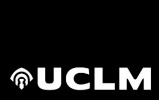Mathematical models for vector-borne infections (II)

Organizers: Christopher Kribs & Andrea Pugliese
15:00 – 15:20 -Modelling the climate-driven transmission suitability of the dengue virus / Presenting author: José Lourenço.
15:20 – 15:40 – Impact of ADE and dengue vaccination with screening on the toll of a dual dengue-Zika outbreak / Presenting author: Christopher Kribs.
15:40 – 16:00 – Evaluating the transmission dynamics of co-circulating chikungunya, Zika, and dengue viruses / Presenting author: Alex Perkins.
16:00 – 16:20 – A novel compartmental framework for modelling lymphatic filariasis dynamics and elimination strategies / Presenting author: Indrajit Ghosh.
Digital twins for clinical oncology and cancer research

Organizers: Guillermo Lorenzo & Chengyue Wu
15:00 – 15:20 – Predictive modelling in radiation oncology / Presenting author: Heiko Enderling.
15:20 – 15:40 – Therapy optimization in gliomas: in vitro and in silico study of alternative dose spacings / Presenting author: Juan Jiménez-Sánchez.
15:40 – 16:00 – Integrative kinetics and machine learning modeling for prediction of outcomem following immunotherapy in lung cancer / Presenting author: Sèbastien Benzekry
16:00 – 16:20 – Digital twins in leukemia treatment / Presenting author: Ana Niño-López
Multiscale mathematical models in physiological processes and cancer. From sub-cellular mechanisms to phenotype switching and metastasis (II)

Organizers: Niklas Kolbe & Zuzanna Szymanska.
15:00 – 15:20 – Exploring the role of EMT in ovarian cancer progression and metastasis / Presenting author: Sam Oliver.
15:20 – 15:40 – A multi-layer model of cancer metastasis / Presenting author: Niklas Kolbe.
15:40 – 16:00 – Discrete and continuum modeling of robust biological transportation networks / Presenting author: Jan Haskovec.
16:00 – 16:20 – Agent-based modelling of heterogeneous EMT scenarios highlights nuclear positioning and protrusions as main drivers of extrusion / Presenting author: Steffen Plunder.
Mathematical models of cancer immunotherapy (II)

Organizers: Juan Belmonte Beitia & Álvaro Martínez Rubio
15:00 – 15:20 -Car-T cell immunotherapy: from the bench to mathematical modeling / Presenting author: Luciana Rodrigues Carvalho Barros.
15:20 – 15:40 – Understanding the role of B cells in the treatment with CAR-T cells for acute lymphoblastics leukemia / Presenting author: Sergio Serrano.
15:40 – 16:00 – Modeling CD19 relapses after CAR-T cell therapy in B cell leukemias: Insights and implications / Presenting author: Salvador Chulián.
16:00 – 16:20 – A delayed model for tumor-immune system interactions / Presenting author: Laid Boudjellal.
Recent developments on tumor growth models: analysis and simulations

Organizer: Xinran Ruan
15:00 – 15:20 – PDE models for the spatial spread and evolutionary dynamics of heterogeneous cell population / Presenting author: Tommaso Lorenzi.
15:20 – 15:40 – Tumor growth with a necrotic core as an obstacle problem in pressure / Presenting author: Zhennan Zhou.
15:40 – 16:00 – Mathematical problems in a class of tumor growth models / Presenting author: Yu Feng.
16:00 – 16:20 – Structure preserving schemes for tumor growth models / Presenting author: Xinran Ruan.
Quantitative approaches to modelling and analysing cancer-immune interactions (II)

Organizers: Eszter Lakatos & Barbara Bravi
15:00 – 15:20 – A dynamical model of PD-1/PD-L1 and CTLA-4 immune-checkpoint therapy / Presenting author: Kamran Kaveh.
15:20 – 15:40 – Stochastic mutation rate switching in reponse to immune selection in mismatch repair-deficient colorectal cancer (MMRd CRC) / Presenting author: Lauren McKenzie.
15:40 – 16:00 – Modeling the co-evolution of an evolving cancer and T-cell repertoire: challenges and exciting opportunities for mathematics to improve T-cell immunotherapy / Presenting author: Jason T. George.
16:00 – 16:20 – The interplay between the cancer cell and the immune microenvironment during cancer / Presenting author: Nicholas McGranahan.
Mathematical modeling of microbial ecological systems: Bridging theory and experiments (II)

Organizers: Havva Yoldaş & Rebeca Gonzalez – Cabaleiro.
15:00 – 15:20 -Impact of an obligate predator on microbial ecosyste The challenges and benefits of combining modelling and high throughput chemostat arrays / Presenting author: J. Kimberley Summers
15:20 – 15:40 – Harnesing synthetic microbial communities for environmental bioremediation: Insights from genome-scale metabolic modeling / Presenting author: William Scott.
15:40 – 16:00 – Dynamics of encapsulated bacteriophage in the gastrointestinal tract / Presenting author: Carles Barril
16:00 – 16:20 – Closing talk on ‘Mathematical modeling of microbial ecological syste Bridging theory and experiments’ / Presenting author: Havva Yoldas
Applied multi-scale modelling methods in dynamic tissue remodelling

Organizers: Arran B. J. Hodkingson & Anna Zhigun
15:00 – 15:20 – Towards modelling meniscus tissue regeneration – an interdisciplinary approach / Presenting author: Christina Surulescu.
15:20 – 15:40 – Multiscale modelling and analysis for Glioblastoma Multiforme progression and relapse / Presenting author: Dumitru Trucu.
15:40 – 16:00 – Mathematical modelling of cancer invasion: Phenotypic transitioning provides insight into multifocal foci formation / Presenting author: Zuzanna Szymanska.
16:00 – 16:20 – Hybrid modelling of spatially extended reaction-diffusion processes / Presenting author: Kit Yates.
New directions for stochastic models of epidemics (I)

Organizers: Jacob Curran-Sebastian & Thomas House.
10:40 – 11:00 – Long-term behaviour of a stochastic epidemic in a growing population / Presenting author: Malwina Luczak
11:00 – 11:20 – Applications of Bayesian stochastic hierarchical models in epidemiology / Presenting author: Punya Alahakoon.
11:20 – 11:40 – Using Hawkes process to model malaria in countries close to elimination / Presenting author: Juliette Unwin.
11:40 – 12:00 – A Bayesian SEIR modelling approach to quantifying the impact of COVID-19 Vaccination on lives saved in Sweden 2021 / Presenting author: Fanny Bergström.
Data-driven approaches in infectious disease modelling

Organizers: Necibe Tuncer & Stanca Ciupe
10:40 – 11:00 – Simple models of epidemic control through mass-testing / Presenting author: Andrea Pugliese.
11:00 – 11:20 – Data-dependent limits to modeling viral dynamics and epidemic spreading / Presenting author: Mario Castro Pence.
11:20 – 11:40 – Multi-scale modelling of inhalational anthrax / Presenting author: Bevelynn Williams.
11:40 – 12:00 – The effect of model structure and data availability on Usutu virus dynamics at three biological scales / Presenting author: Necibe Tuncer.



